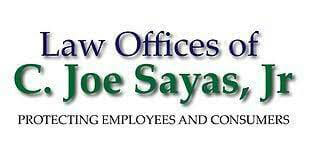
Afrouz Nikmanesh worked as a pharmacist for Walmart for more than 10 years. During her time as a Walmart pharmacist, Dr. Nikmanesh reported several noncompliance issues to management. These included Medicare patients being charged above reimbursement rates, Walmart failing to provide beneficiaries with Medicare discounts, and failing to report the dispensing of opioids and other controlled substances to government regulators.
Dr. Nikmanesh asked management to investigate and correct these violations of law. However, the day after one of Dr. Nikmanesh’s complaints, her supervisor started an ethics investigation into her outside activities. Walmart eventually cleared Dr. Nikmanesh of any wrongdoing but her supervisor still terminated her employment.
Dr. Nikmanesh sued Walmart for wrongful termination in violation of public policy and for retaliation in violation of California Labor Code.
Walmart asked the court to dismiss the case and argued that Dr. Nikmanesh was not terminated but instead resigned from her position. Walmart presented Dr. Nikmanesh’s emails to her supervisor that seemed to say she voluntarily resigned to take another job. But Dr. Nikmanesh testified under oath that before she sent those emails, her supervisor had confirmed that she could resign from her full-time management position but she could continue to work at Walmart part-time.
Walmart then argued it did not terminate Dr. Nikmanesh but let her go because no part-time positions were available. However, Dr. Nikmanesh presented evidence that Walmart declined to consider Dr. Nikmanesh for one part-time position, which it then offered to a graduate intern. And though other part-time positions existed, these were not offered to Dr. Nikmanesh. Although the trial court dismissed the case, Dr. Nikmanesh successfully appealed the dismissal and her case eventually went to trial.
Under California law, an employer may not terminate an employee for retaliatory reasons. Doing so may give rise to a wrongful termination claim. In order to skirt around the law, the employer may claim that it had a legitimate, non-discriminatory reason for firing the employee (such as poor performance or customer complaints). It is then up to the employee to prove that the employer’s stated reason for the firing was a “pretext.” To prove pretext, the employee may show that the stated reason is false, did not cause the firing, or is not enough to cause a firing (i.e., people are not usually fired for this reason)
The California Whistleblower Protection Act specifically protects employees from being retaliated against after reporting to a government agency that their employer has violated the law. The Act also protects employees who report of a suspected violation internally (for instance, to a supervisor within the organization) or externally to “any public body” conducting a hearing or investigation. Employees are protected if they truly believed the conduct they complained about was unlawful, even if it was not. The employer is also prohibited from retaliating against an employee who refuses to participate in activities that violate the law.
In order to prove that the employer engaged in illegal retaliation, the employee must show all of the following
- First, that they engaged in a protected activity, such as report to management or a government agency about suspected violations.
- Second, that the employer subjected the employee to an adverse employment action, such as a demotion or termination.
- Finally, that there is a ‘causal link’ between the conduct of employee and the employer. A causal link may be established if the employer knew that the employee engaged in protected activity, and immediately after fired the employee.
In Dr. Nikmanesh’s case, the trial court concluded, and Walmart conceded, that Dr. Nikmanesh proved that “she engaged in protected activities by complaining to and notifying Walmart of its noncompliance with various rules and regulations.” It is also clear that Dr. Nikmanesh was fired soon after she complained to the employer. The jury now had to decide whether there was a “causal link” between the employee’s protected activity and the employer’s firing of her.
The jury concluded that such a causal link existed and that Dr. Nikmanesh was illegally retaliated against by the employer. The jury awarded Dr. Nikmanesh $40,000 for economic losses, $100,000 for non-economic losses, $60,000 for future non-economic losses and $27.3 million in punitive damages.
The Law Offices of C. Joe Sayas, Jr. welcomes inquiries about this topic. All inquiries are confidential and at no-cost. You can contact the office at (818) 291-0088 or visit www.joesayaslaw.com. [For more than 25 years, C. Joe Sayas, Jr., Esq. successfully recovered wages and other monetary damages for thousands of employees and consumers. He was named Top Labor & Employment Attorney in California by the Daily Journal, consistently selected as Super Lawyer by the Los Angeles Magazine, and is a past Presidential Awardee for Outstanding Filipino Overseas.]

